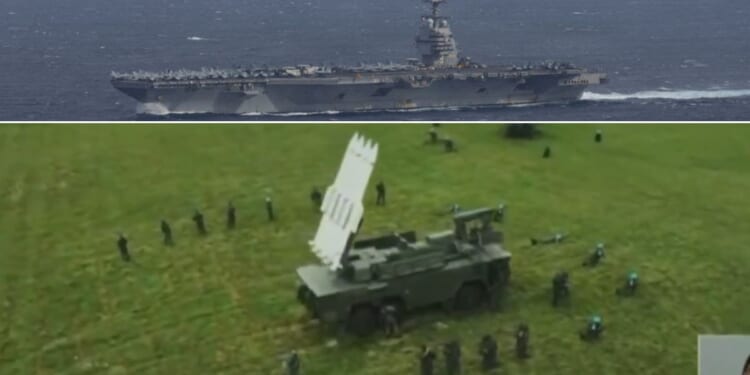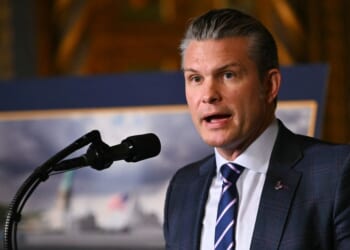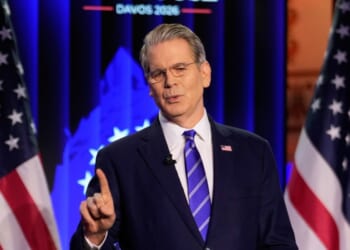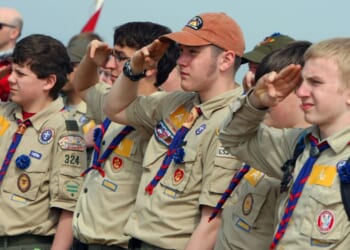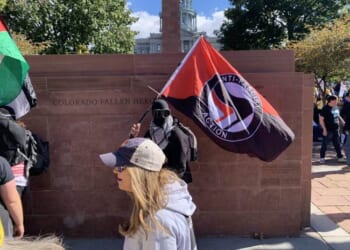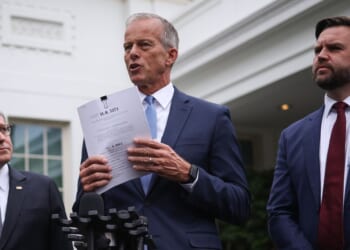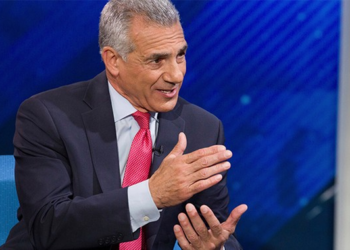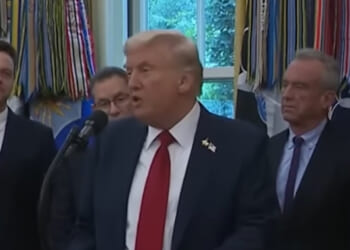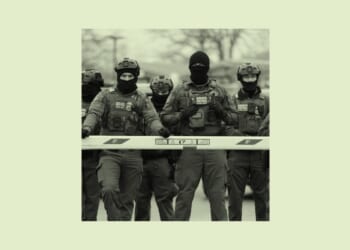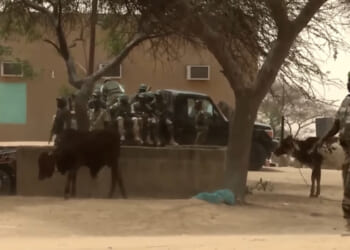Venezuela is responding to the presence of America’s largest aircraft carrier off the South American coast with a massive military call-up.
Venezuelan Defense Minister Vladimir Padrino López said Tuesday he declared an alert to put “the entire country’s military arsenal on full operational readiness,” according to The Washington Post.
Padrino López said a “massive deployment of ground, aerial, naval, riverine and missile forces” is taking place, saying that almost 200,000 troops are being deployed.
200,000 Venezuelan troops mobilized for drills using RUSSIAN air defenses as US forces amass in Caribbean
‘Venezuela is DEFENDED by Bolivarian force’ — Defense Minister Vladimir Padrino López https://t.co/Bt6vuF0D2k pic.twitter.com/vxH0J8Zq2z
— RT (@RT_com) November 11, 2025
Tuesday marked the arrival of the Gerald R. Ford Carrier Strike Group in the region, the Navy said.
Department of War representative Sean Parnell said the deployment “will bolster U.S. capacity to detect, monitor, and disrupt illicit actors and activities that compromise the safety and prosperity of the United States homeland and our security in the Western Hemisphere.
“These forces will enhance and augment existing capabilities to disrupt narcotics trafficking and degrade and dismantle Transnational Criminal Organizations,” he said.
The Ford has about 4,000 sailors aboard. It joins Iwo Jima Amphibious Ready Group and embarked marine expeditionary unit.
In addition to the aircraft of Carrier Air Wing Eight, the group includes the guided-missile destroyers USS Bainbridge and USS Mahan and the integrated air and missile defense command ship USS Winston S. Churchill.
“The only reason to move [the Ford] there is to use it against Venezuela,” Mark Cancian, a senior defense adviser at the Center for Strategic and International Studies, said.
⚠️🇺🇸 USS Gerald Ford finally arrives in the Caribbean Sea. It is accompanied by 2 destroyers pic.twitter.com/aEpvFq7z2w
— Military Observer (@MilitaryObs2222) November 12, 2025
Colombian President Gustavo Petro said that as long as America targets fast boats running drugs, Colombia will not share intelligence with America.
“All levels of law enforcement intelligence are ordered to suspend communications and other agreements with U.S. security agencies,” Petro said. “This measure will remain in place as long as missile attacks on boats in the Caribbean continue. The fight against drugs must be subordinate to the human rights of the Caribbean people.”
Although the deployment of the Ford sends an aggressive message, Defense Secretary Pete Hegseth and Secretary of State Marco Rubio told some members of Congress in a classified briefing that the military does not plan to directly strike the Venezuelan government, the Post reported, citing sources it did not name.
Cancian told Military.com that the current level of forces is not enough for a ground attack, but it has plenty of firepower for long-range air strikes.
“The character seems to have changed,” Cancian said. “Now, it’s possible that those strikes would only go against cartel targets on the ground in Venezuela. But it could easily also focus on the regime, and separating cartels and the regime isn’t always that easy.”
He said he thinks the U.S. is trying to put enough pressure on Venezuela that its leadership collapses.
“I’ve heard the theory that the administration is hoping for the regime to disintegrate so that we could come in and pick up the pieces, bring in the opposition, and have them form a new government,” Cancian said. “I don’t know if that’s their plan, but what they’re doing is consistent with that.”
Advertise with The Western Journal and reach millions of highly engaged readers, while supporting our work. Advertise Today.

